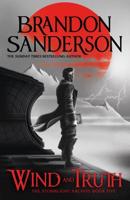Publisher's Synopsis
This historic book may have numerous typos and missing text. Purchasers can usually download a free scanned copy of the original book (without typos) from the publisher. Not indexed. Not illustrated. 1870 edition. Excerpt: ...drought, which almost destroyed the prospects of the wool crop, had very much paralyzed the exertions of the gold reefers. Quartz-crushing machines cannot work without a permanent supply of water, and it is a question whether some of the capital now seeking investment in this country might not be usefully and profitably employed in saving and storing water for the squatters and gold-crushers of Queensland. 1 am glad to find, however, that in spite of the severe drought, gold-digging has prospered in the Rockhampton district to an extent never before known. Not only have several very rich reefs been discovered, but a sum of nearly 40,000l. has been expended during the past year on machinery in Rockhampton alone, and several very good machines have been erected on the neighbouring reefs. From 5706 tons of stone crushed by these machines, the yield was 6090 oz. of gold, or more than double what is considered a very paying quantity in Victoria.. From a paper just received I quote the following remarks: " There is no district in the colony in which gold digging is such an established industry as in that around Rockhampton, and the extent of gold-bearing reefs there is incalculable. '1'hc only thing that can be said against them is that as a rule they are not so rich as those at Gympie." Passing to the west and north, we come to the Peak Downs gold fields, which have been worked with more or less success for a considerable time. The late long-continued drought, and the superior attractions of other fields, have contributed to throw this district a little into the shade. The report of the Gold Commissioner for 1868 speaks very confidently of the permanent character of these goldfields, if only water could be stored to renderI...


























